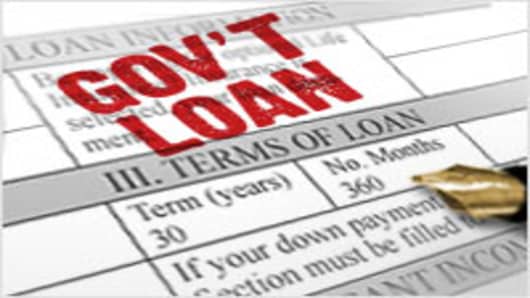Two very well-respected Columbia University business types are floating a plan today in the op-ed pages of the Wall Street Journal that they claim will fix the housing market and the greater economy.
I agree with them that housing is at the heart of the economic tsunami that is now flooding every aspect of our economy, and that the housing market needs more of an infusion than the current legislation making its way to the House of Representatives can offer. But I also believe their fix borders on dangerous.
I don't mean any disrespect; I'm a Columbia grad myself, but Glen Hubbard and Chris Mayer are suggesting that the government somehow give everyone a mortgage with a 5.25 percent interest rate, and for those who are underwater on their loans (house is worth less than the loan), new mortgages would be made of up 95% of the current value of a home.
They don't say the government would decide who gets this historically low interest rate refi, but I'm guessing it's whoever is delinquent on their loan. But here's one problem: A lot of the folks who are delinquent can't afford a 5.25 percent interest rate. The only reason they could buy their overpriced homes in the first place was because they got ridiculously low teaser rates, with no money down. They were paying perhaps as low as 3% for a time before the loan adjusted.
The authors also suggest that this would be relatively simple, since the government took over Fannie Mae and Freddie Mac and therefore own so many of the loans already. But what about the loans that F and F don't own. Many of those are the ones that were packaged and sold to investors. And then what about the jumbo issue? They don't seem to address that.
Jumbo loans are going into foreclosure now as well, bringing down the high end of the market right along with the low end. But I suppose the theory is that if you had enough money to get into a jumbo, then you don't deserve to be bailed out for your bad decisions as much as someone who made the same bad decision on a lower-priced home.



